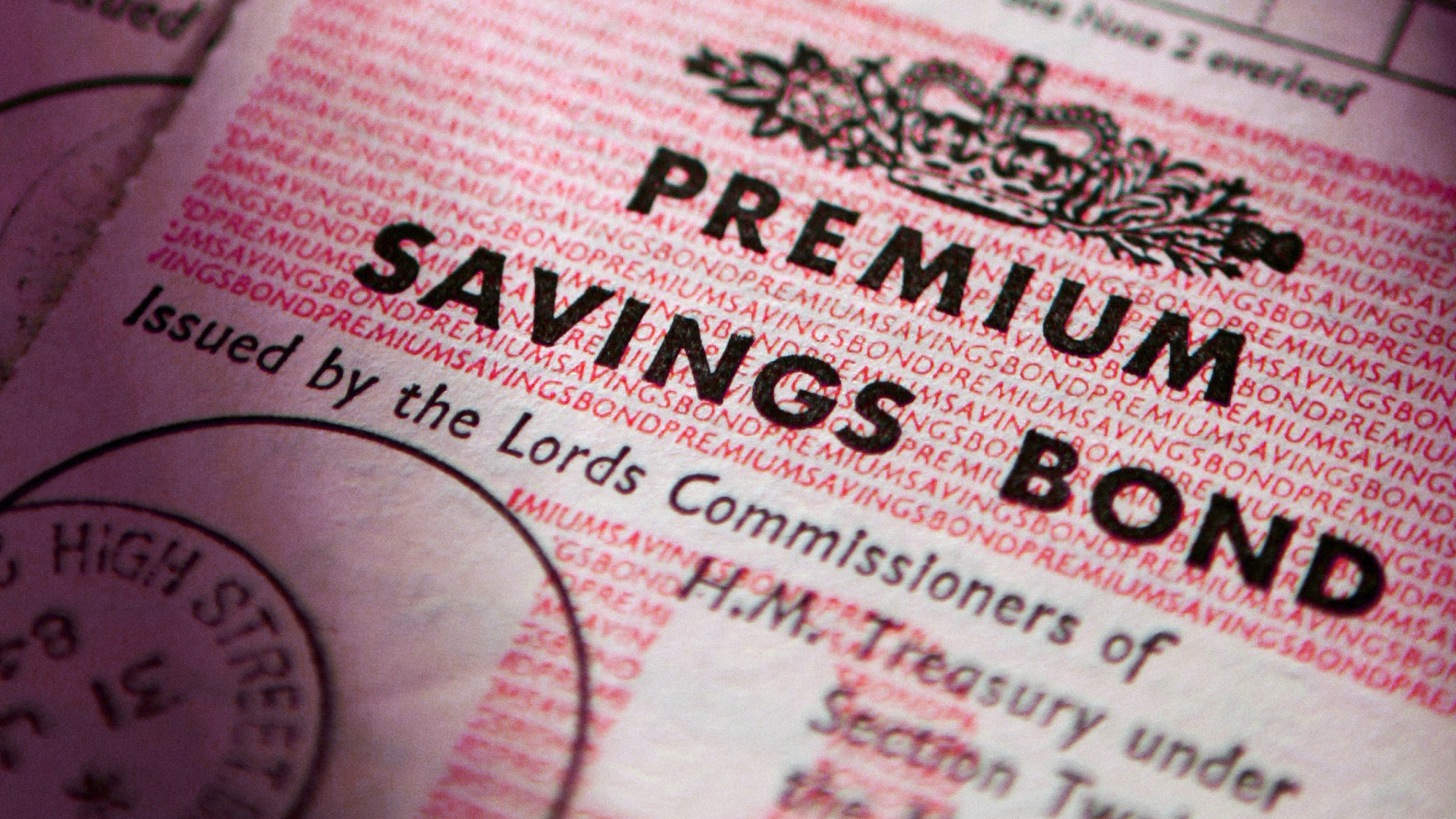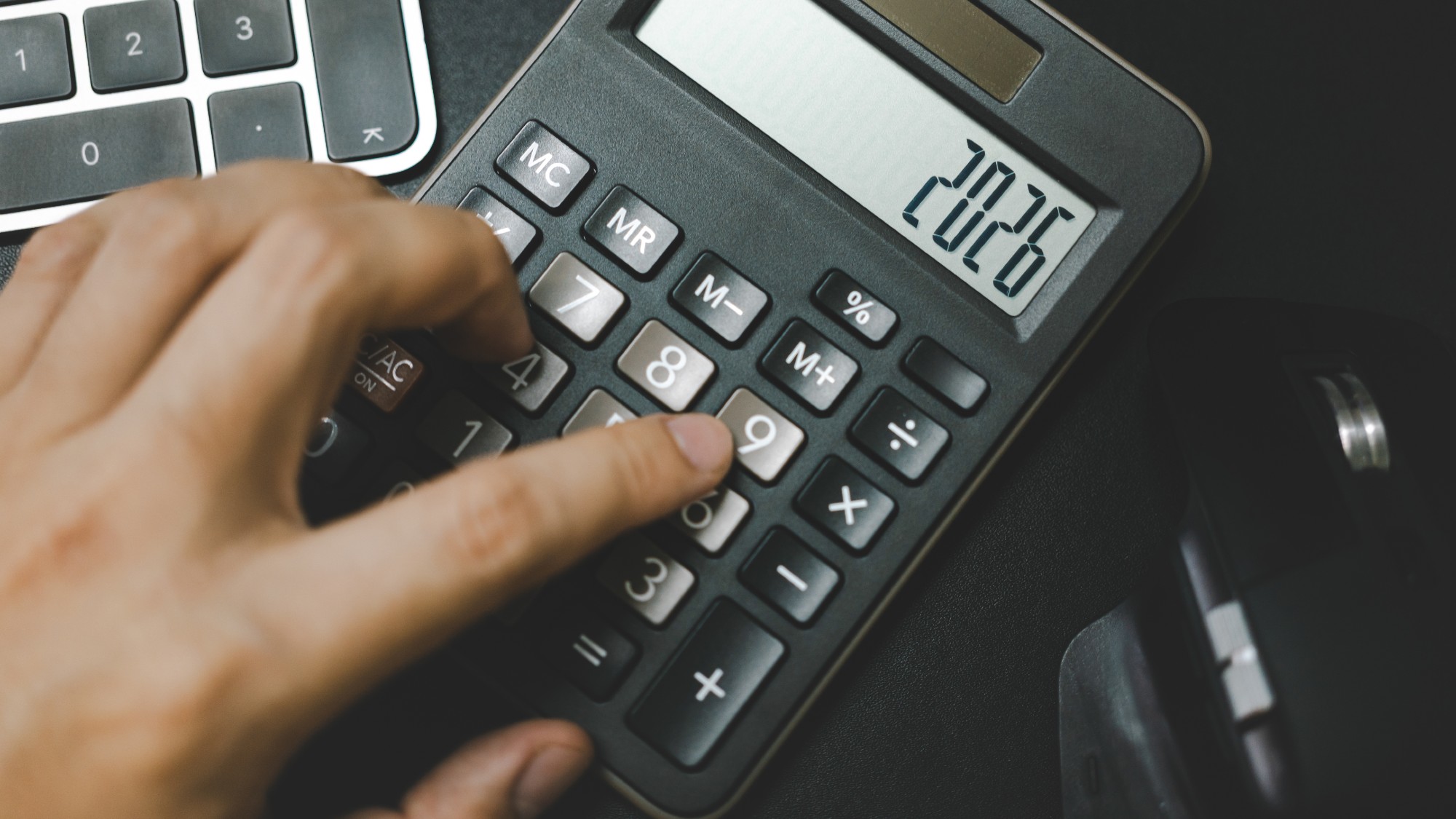Premium Bonds prizes: all you need to know
The lottery bond has a reputation as the ‘nation’s favourite savings product’ but might not be your best investment option

A free daily email with the biggest news stories of the day – and the best features from TheWeek.com
You are now subscribed
Your newsletter sign-up was successful
National Savings & Investments (NS&I) has revealed the February results of its Premium Bonds draw, creating two millionaires overnight, with thousands more scooping smaller prizes.
The £1 million winners were officially announced as holders from Liverpool and central Bedfordshire, both with a maximum investment of £50,000. More than six million prizes worth more than £408 million in total were paid out in February, with the vast majority going for a more modest £25 or £50.
It brings the total won by Premium Bonds holders since the first draw in 1957 to £40 billion, said Andrew Westhead, NS&I’s retail director.
The Week
Escape your echo chamber. Get the facts behind the news, plus analysis from multiple perspectives.

Sign up for The Week's Free Newsletters
From our morning news briefing to a weekly Good News Newsletter, get the best of The Week delivered directly to your inbox.
From our morning news briefing to a weekly Good News Newsletter, get the best of The Week delivered directly to your inbox.
What are Premium Bonds?
Launched in 1956 by then-chancellor Harold Macmillan, Premium Bonds are issued by NS&I and have been used by governments to raise funds.
Unlike investments offering savers interest or a regular dividend income, Premium Bonds offer customers the chance to win between £25 and £1 million tax-free in a monthly prize draw.
Winning Premium Bonds are drawn at the beginning of each month, using a random number generator nicknamed ERNIE (Electronic Random Number Indicator Equipment).
How to buy Premium Bonds
Savers must deposit a minimum of £25 and can put a maximum of £50,000 into the accounts. “With every entry you make, your chances of winning increase up to a maximum of £50,000 of investment,” said Unbiased.co.uk, so “as the old adage goes, ‘you’ve got to be in it, to win it’”.
A free daily email with the biggest news stories of the day – and the best features from TheWeek.com
You can purchase Premium Bonds for yourself or for a child aged under 16 by phoning the NS&I customer helpline or on the NS&I website.
As part of the application, you will need to provide your address, date of birth, and bank account details. If applying for your own child, you will need to provide their date of birth, proof of identity, and address.
You can also buy Premium Bonds for someone else’s child, but will need to nominate a parent or guardian to manage the account until the child is 16.
Applications can take seven to 10 days to process, and you may be asked to provide extra documents to prove identities.
How to withdraw Premium Bonds
Selling Premium Bonds is an easy process. They can be cashed in, either in full or in part, “at any time without penalty”, said MoneyHelper. In fact, this can be done “straight away” for those who have an online account.
Alternatively, savers can download the NS&I’s Premium Bonds cashing-in form, fill it out and post it to the address on the form.
Once Premium Bonds have been cashed in, “you can choose” what to do next with the money, said LawHive, whether this is putting it into a savings account or pursuing an investment opportunity.
What are the Premium Bonds prizes?
Prizes that can be won from saving into Premium Bonds vary, but many will have their eyes on the £1 million jackpot, which two people will win each month.
Prizes are split into “three value bands”: higher, medium and lower, explained NS&I. Once the two lucky millionaires are decided, the company will then “allocate a percentage share of the monthly prize fund to each band”.
The highest-value band prizes are worth £100,000, £50,000, £25,000, £10,000 and £5,000, the medium-value prizes are issued in amounts of £1,000 and £500 and, finally, the lowest-value prizes are £100, £50 and £25.
What are my chances of winning a Premium Bonds prize?
The “nearest thing Premium Bonds have to an interest rate”, said MoneySavingExpert, is the annual prize rate. This rate is a benchmark of the “average” return investors get for their money – “though in reality, there’s no guarantee you’ll win anything”.
The odds of winning any prize each month are 22,000 to one for every £1, and “each Bond has an equal chance of winning”, said Saga Magazine. But when it comes to the chances of striking it lucky with a “larger, life-changing amount”, these are “much smaller”.
While a “lot of maths” is involved when it comes to calculating how the prize rate fund is split, what is important to note is that Premium Bonds holders may see the real value of their savings “diminish over time”, said the magazine. The money “isn’t going to be keeping up with inflation” unlike a traditional savings account that pays interest.
And because this is a lottery bond, “the fewer bonds you hold, the lower your chances of winning the jackpot”, The Telegraph said.
How to check if I have won Premium Bonds
Keep your contact details up to date, because NS&I informs each winner of their prize. Alternatively, you will need to check if your bond holdings “have been successful”, said The i Paper. To do so, holders can visit the NS&I website and enter their bond numbers into the prize checker. The “same information” is also available through the NS&I app for Apple and Android phones.
To find out if you’ve “been lucky”, holders can also ask an Alexa smartspeaker.
Do I have Premium Bonds?
Millions of people hold Premium Bonds because of their long history and they have a reputation as the “nation’s favourite savings product”. But every year “thousands of Premium Bond winners” die without being able to make a claim, said The Telegraph.
Figures from NS&I showed “some £1.7 million” was inherited by surviving family members in 2024 – after 11,000 people died before collecting their winnings.
In September last year, over 2.6 million prizes worth a combined £106 million were still waiting to be claimed, including 11 bond numbers worth £100,000 each and 20 worth £50,000. London and the South East are the areas with the largest number of unclaimed prizes.
If you have not checked for old, lost Premium Bonds wins, “don’t panic”, said Moneyfacts, as “there is no deadline to collect your winnings”, meaning you can claim as far back as the original 1957 draw. NS&I will “hold on to the funds for you” until they track you down, or you highlight the issue to them.
Those who “know or can find” their holder number will find it “straightforward” to claim any Premium Bond prizes, the financial website continued. The holder number includes either nine or 10 digits, or eight digits and a letter.
Understandably, some individuals will not be able to find their number. In this circumstance, “you can phone NS&I on 0808 500 7007 or write and ask for a replacement bond record to be sent to you”, Good Housekeeping explained. To better your chances, it is important to “give as much detail as you can”, such as your previous addresses, and when and where the Premium Bonds were bought.
NS&I also operates a tracing service to track down Bonds.
Are Premium Bonds a good investment?
The prizes are tax-free, plus NS&I is backed by the Treasury, “so 100% of your money is safe”, Which? said. By contrast, a maximum of £120,000 of money held in a savings account is protected by the Financial Services Compensation Scheme if a provider goes bust.
However, money held in savings accounts or an ISA will earn a rate of interest, but Premium Bonds will not. It’s a lottery, so “there is a chance you could win nothing at all”, the site continued. “And, as your savings won’t be earning any interest, they will effectively lose value over time due to inflation”.
New research from investment platform Lightyear suggests that “bond holders are falling short compared to UK investors, missing out on thousands by choosing to dodge the stock market”, said City A.M. It found that the average Premium Bond holder with a balance of £6,000 would have earned £908 in prizes between 2021 and 2025, while the same amount invested in a FTSE 100 stocks and shares ISA over the same period would have yielded £10,600 – a difference of nearly £3,800.
Premium Bonds can “make sense” if you are a higher-rate taxpayer and have already used your £20,000 annual ISA allowance, said Investors’ Chronicle, but they do now “pay less” than the top easy-access accounts on the market.
There are also alternatives to Premium Bonds that offer prizes rather than savings interest.
The chances of winning are relatively low. Premium Bonds are typically considered as a “middle-of-the-road” option, said ThisisMoney, and the “vast majority” of holders “won’t be lucky at all”. To achieve “average luck”, holding a “decent amount” in Premium Bonds is key.
All the same, Premium Bonds may be attractive to people who do not want to put their cash in a fixed-term savings account or take the more risky route of investing in the stock market. You can withdraw cash held in Premium Bonds at any time without penalties.
But ultimately, it’s best to view saving with Premium Bonds as “a bit of fun rather than a core savings strategy”, added MoneySavingExpert. As they’re “capital-secure”, even if returns are negligible, investing a small amount could be worthwhile, that is, as long as you “check the likely returns using the calculator”.
Rebekah Evans joined The Week as newsletter editor in 2023 and has written on subjects ranging from Ukraine and Afghanistan to fast fashion and "brotox". She started her career at Reach plc, where she cut her teeth on news, before pivoting into personal finance at the height of the pandemic and cost-of-living crisis. Social affairs is another of her passions, and she has interviewed people from across the world and from all walks of life. Rebekah completed an NCTJ with the Press Association and has written for publications including The Guardian, The Week magazine, the Press Association and local newspapers.
-
 How to Get to Heaven from Belfast: a ‘highly entertaining ride’
How to Get to Heaven from Belfast: a ‘highly entertaining ride’The Week Recommends Mystery-comedy from the creator of Derry Girls should be ‘your new binge-watch’
-
 The 8 best TV shows of the 1960s
The 8 best TV shows of the 1960sThe standout shows of this decade take viewers from outer space to the Wild West
-
 Microdramas are booming
Microdramas are boomingUnder the radar Scroll to watch a whole movie
-
 What are the best investments for beginners?
What are the best investments for beginners?The Explainer Stocks and ETFs and bonds, oh my
-
 How to juggle saving and paying off debt
How to juggle saving and paying off debtthe explainer Putting money aside while also considering what you owe to others can be a tricky balancing act
-
 The pros and cons of tapping your 401(k) for a down payment
The pros and cons of tapping your 401(k) for a down paymentpros and cons Does it make good financial sense to raid your retirement for a home purchase?
-
 Saving for a down payment on a house? Here is how and where to save.
Saving for a down payment on a house? Here is how and where to save.the explainer The first step of the homebuying process can be one of the hardest
-
 Planning a move? Here are the steps to take next.
Planning a move? Here are the steps to take next.the explainer Stay organized and on budget
-
 What should you look out for when buying a house?
What should you look out for when buying a house?The Explainer Avoid a case of buyer’s remorse
-
 What to look for in a reliable budgeting app
What to look for in a reliable budgeting appThe Explainer Choose an app that will earn its place in your financial toolkit
-
 3 smart financial habits to incorporate in 2026
3 smart financial habits to incorporate in 2026the explainer Make your money work for you, instead of the other way around